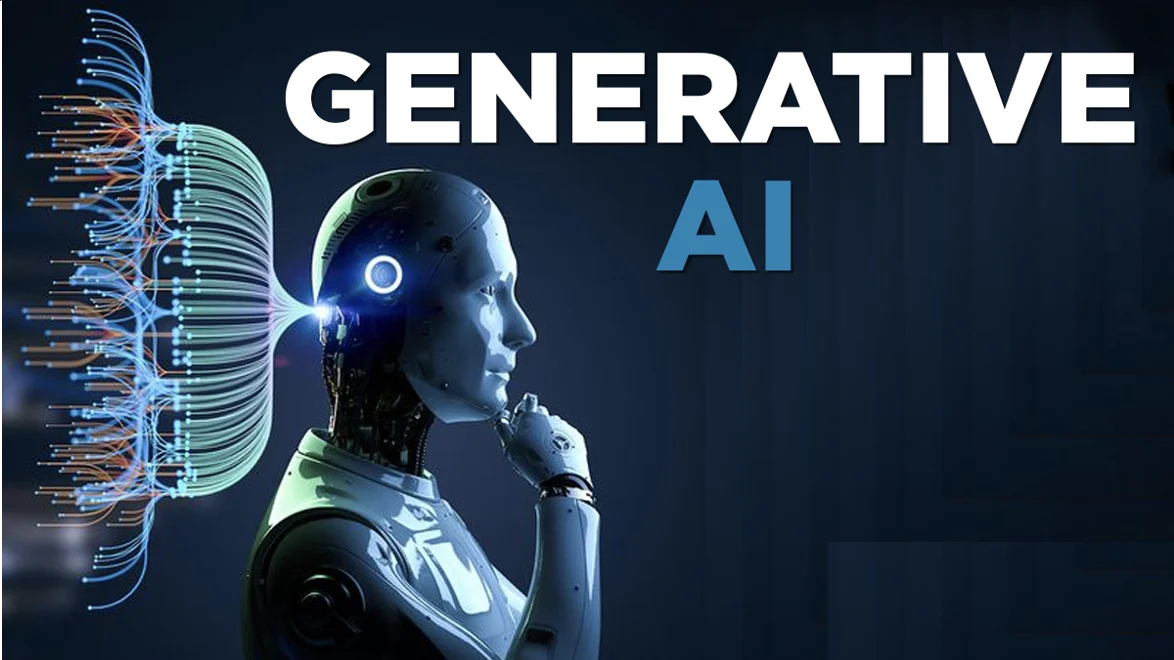Introduction
Enterprise search—the ability to find and retrieve information quickly across an organization’s structured and unstructured data—has long been a challenge for businesses. Despite investing heavily in data storage, knowledge bases, and search platforms, many enterprises still struggle with information silos, irrelevant results, and poor user experiences. As data volume and complexity grow exponentially, traditional keyword-based search approaches are no longer sufficient.
Enter Generative AI (GenAI), a transformative technology capable of understanding context, interpreting intent, and generating highly relevant, personalized search responses. Unlike traditional search engines that simply match keywords, GenAI can comprehend natural language queries, retrieve data from diverse sources, synthesize information, and even generate new insights, revolutionizing the way employees and customers interact with enterprise data.
This article explores how Generative AI is shaping the future of enterprise search, its key capabilities, benefits, real-world applications, challenges, and what organizations can expect in the next generation of intelligent search solutions.
1. The Limitations of Traditional Enterprise Search
Before diving into GenAI-powered search, it’s important to understand why traditional search models fall short in enterprise environments:
- Keyword Dependency: Searches often fail when users don’t know the exact keywords or technical terminology.
- Data Silos: Information is spread across multiple applications (CRM, ERP, document management, cloud storage) with no unified access.
- Unstructured Data Challenges: Emails, PDFs, videos, and chat logs are difficult to index and search accurately.
- Contextual Gaps: Search tools can’t interpret intent or provide answers tailored to specific roles, tasks, or ongoing projects.
- Static Results: Conventional search retrieves documents or links but rarely provides actionable, synthesized answers.
These limitations slow down decision-making, reduce productivity, and lead to “knowledge loss” within organizations.
2. What Is Generative AI-Powered Enterprise Search?
Generative AI brings context-aware intelligence to enterprise search. Large Language Models (LLMs), natural language processing (NLP), and retrieval-augmented generation (RAG) techniques, GenAI search systems go beyond keyword matching to:
- Understand intent: Comprehend the meaning behind user queries, even ambiguous or incomplete ones.
- Retrieve and synthesize: Gather data from multiple sources and summarize key insights.
- Generate natural language responses: Provide answers in conversational, easy-to-understand formats.
- Learn continuously: Improve search accuracy over time based on user feedback and interactions.
Essentially, GenAI transforms enterprise search from “finding documents” to “finding knowledge and actionable answers.”
3. How Generative AI Enhances Enterprise Search
3.1 Natural Language Query Understanding
Employees can ask questions in plain English (or any language) instead of relying on rigid search terms. For example:
- “What were last quarter’s top-performing products in the EU market?”
- “Show me all contracts with renewal dates in the next 90 days.”
GenAI understands intent, context, and synonyms, reducing the need for predefined queries.
3.2 Semantic Search and Contextual Relevance
GenAI uses vector embeddings and semantic indexing to:
- Find relevant information even if exact keywords aren’t present.
- Prioritize contextually significant results over keyword matches.
- Tailor answers based on user role, department, or project context.
3.3 Retrieval-Augmented Generation (RAG)
A next-gen approach where:
- GenAI first retrieves relevant documents from internal repositories.
- Then, it summarizes and generates a coherent, verified answer.
- Ensures factual accuracy by grounding responses in enterprise data sources.
3.4 Unified Search Across Data Silos
GenAI-powered systems can:
- Connect to CRMs, ERPs, emails, SharePoint, Slack, cloud storage, and other enterprise apps.
- Deliver a single point of access to organizational knowledge, breaking down silos.
3.5 Personalized and Proactive Search
Over time, GenAI:
- Learns user preferences and tailors results accordingly.
- Anticipates needs and suggests relevant documents or insights proactively.
- Enhances collaboration by recommending related information to teams working on similar projects.
3.6 Conversational Search Interfaces
Employees can engage in two-way conversations with enterprise search tools:
- Ask follow-up questions.
- Request deeper analysis.
- Get step-by-step recommendations, not just links or file names.
4. Key Benefits of GenAI-Powered Enterprise Search
- Faster Access to Knowledge: Saves employees hours of searching and reviewing documents.
- Improved Decision-Making: Provides summarized, context-rich insights for executives and teams.
- Enhanced Employee Productivity: Reduces duplicated work and knowledge loss.
- Seamless Collaboration: Centralizes knowledge-sharing across departments and systems.
- Better Customer Support: Agents quickly retrieve accurate information, improving response times and satisfaction.
- Scalable Intelligence: Handles growing datasets without performance bottlenecks.
5. Real-World Applications of GenAI in Enterprise Search
5.1 Customer Support Knowledge Bases
- AI retrieves past ticket resolutions, FAQs, and documentation instantly.
- Agents deliver faster, more accurate responses to customers.
5.2 Legal and Compliance Research
- Searches through contracts, regulations, case studies, and generates summaries of compliance risks.
5.3 Healthcare and Life Sciences
- Retrieves clinical trial data, patient records, medical literature to assist in diagnosis or drug discovery.
5.4 Financial Services
- Finds transaction data, market insights, and investment reports in real time for analysts and advisors.
5.5 Product Engineering
- Surfaces design documents, bug reports, and test results, accelerating innovation cycles.
6. Challenges and Considerations
While GenAI revolutionizes enterprise search, organizations must navigate:
- Data Privacy and Security: Ensuring sensitive data isn’t exposed or misused.
- Model Accuracy and Bias: Avoiding hallucinations or skewed results due to poor training data.
- Integration Complexity: Connecting diverse systems and maintaining data quality.
- Change Management: Training employees to use conversational search effectively.
Partnering with expert providers of generative AI services can help enterprises customize solutions, ensure compliance, and maximize ROI.
7. The Future of Enterprise Search with GenAI
Alongside these advancements, developers are also exploring specialized approaches such as Claude code, vibe coding, and other forms of AI coding to make enterprise solutions more adaptive and intelligent. Platforms like AppiSup are empowering teams to experiment with these methods, helping businesses unlock faster innovation and smarter enterprise search capabilities.
The coming years will witness next-generation enterprise search solutions featuring:
- Autonomous Knowledge Agents: AI bots proactively delivering information before users even search.
- Multimodal Search: Combining text, voice, images, and video retrieval for richer interactions.
- Real-Time Analytics: AI-driven dashboards that turn search queries into instant visual insights.
- Cross-Enterprise Intelligence: Securely searching across partner and supply chain ecosystems.
- Integration with Decision Intelligence: Connecting search results directly to AI-powered decision-making workflows.
Conclusion
The future of enterprise search is intelligent, contextual, and generative. By moving beyond traditional keyword-based tools, Generative AI enables enterprises to unlock the full value of their organizational knowledge, providing fast, accurate, and actionable insights.
Organizations adopting GenAI-powered search will not only improve employee productivity but also drive innovation, enhance customer experiences, and gain a competitive edge in a data-driven world.



